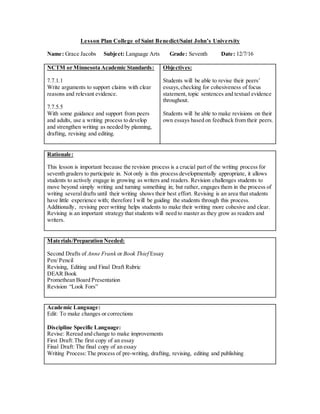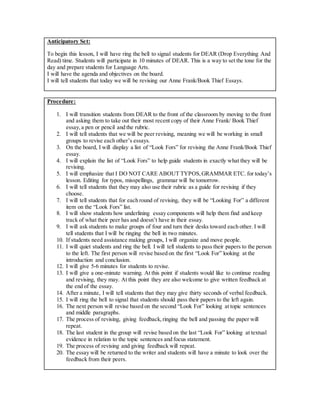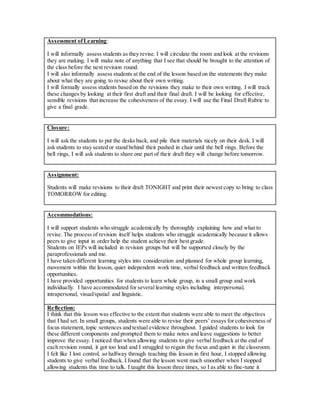This lesson plan is for a 7th grade language arts class where students will revise peer essays. The objectives are for students to revise peers' essays for focus, topic sentences, and evidence, and to make revisions to their own essays based on feedback. Students will work in groups to peer review drafts of essays about Anne Frank or The Book Thief based on a list of revision points. The teacher will assess students informally during peer review and formally based on revisions between drafts.



